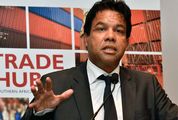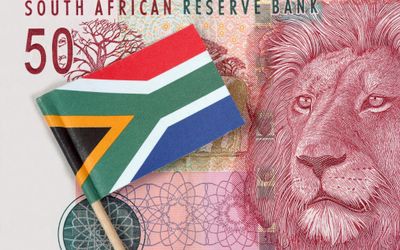ACROSS the developed world, an uncomfortable question is announcing itself: is it okay for public institutions to dish out money for nothing; to deposit hard cash into the bank accounts of millions of people and never ask for it back?
From deep in the guts of the western middle classes, the answer is a growling no. Payment is a reward for hard work, they have been told.
It is what you get for taking risks or for ingenuity. To hand people public money and ask for nothing in return offends against the order of things.
That, after all, is the mantra on which Ronald Reagan and Margaret Thatcher came to power. It struck the very deepest chord back then and today it resonates even more deeply.
"We choose aspiration," UK Chancellor of the Exchequer George Osborne said in a recent budget speech.
"This budget backs the self-employed, the small business owner and the homebuyer. It helps hardworking people…."
And yet, in a technocratic language far removed from the rhetoric of stump speeches, the idea of handing out money for nothing is very much in the air.
It is there, for instance, in recent debates about how to manage the business cycle. What are central banks to do if interest rates are still at historic lows when it is time to fight the next recession, especially now that it is common cause that quantitative easing has been inefficient?
"Helicopter money" is the answer of Citigroup chief economist Willem Buiter.
He is referring to a famous scenario Milton Friedman painted nearly half a century ago. "Let us suppose now," Friedman wrote, "that one day a helicopter flies over this community and drops an additional $1,000 in bills from the sky."
Financial Times columnist Martin Wolf puts it in greyer language.
"Permanent monetary emission for the purpose of promoting purchases of goods and services," he writes.
If, come the next recession, central banks do indeed choose to dispense helicopter money, I’d hazard a guess that it will arrive in heavy disguise, as a central bank-financed tax cut, for instance, or a payment into the fiscus for new government programmes.
The most effective mechanism, of course, would simply be to write a cheque to every citizen. I suspect that this would offend too deeply, that the handout would have to be fudged.
I tell this story because there is a South African analogy.
The South African government has been depositing money into the bank accounts of an escalating number of its citizens for many years now.
The purpose is not to fight a recession, but to ward off hunger. And the payments are not temporary, as a helicopter payment would be, but in perpetuity.
We are enormously uncomfortable about these monetary transfers. We disguise them as pensions and disability grants and insist they are only for those too old or too impaired to work.
But they are in reality a substitute for work, a way of staving off disaster in a world that cannot employ nearly enough people.
We are enormously shamed by these payments. They have become an emblem of our incapacity to create jobs, a synonym for long-term decline.
And yet they are the single most successful social policy in the brief history of post-apartheid governance, precisely because they do not involve the complicated business of running decent schools, for instance, or managing decent hospitals.
There is urgent talk abroad right now about how to cut spending and raise revenue before the rating agencies turn SA’s sovereign bonds to junk.
The proposed national minimum wage, national health insurance, the looming nuclear deal, public sector salaries: all of these are under fierce attack.
It is interesting, in this context, that nobody has dared suggest touching cash transfers to the poor.
By its silence, SA is acknowledging that the single most important service its government offers is to give away money for nothing.
Cursed and resented, it is sacrosanct, the closest proxy for justice the losers in a very harsh society get to taste.
The developed world is honing a language to conceal an impending drop of money from the sky.
SA has long honed a language to conceal that dropping money from the sky is the most important thing it does.
• Steinberg teaches African Studies at Oxford University and is a visiting professor at the Wits Institute for Social and Economic Research





















Change: -1.84%
Change: -2.22%
Change: -3.22%
Change: -2.18%
Change: -0.22%
Data supplied by Profile Data
Change: -0.36%
Change: -0.13%
Change: -1.84%
Change: 0.00%
Change: 0.00%
Data supplied by Profile Data
Change: -0.11%
Change: 0.08%
Change: 0.13%
Change: 0.44%
Change: -0.11%
Data supplied by Profile Data
Change: -0.02%
Change: -0.11%
Change: -0.39%
Change: -0.80%
Change: -2.32%
Data supplied by Profile Data